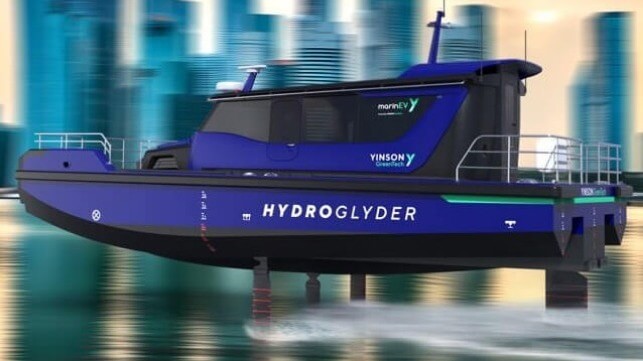Singapore Selects 11 Designs in Effort to Promote Electric Harbor Crafts

Singapore’s Maritime and Port Authority has selected 11 design proposals as part of its ongoing competition to develop advanced electric harbor crafts. The authority reports it received strong interest in the effort designed to promote the adoption of fully electric harbor craft demonstrating the strong interest and confidence of the industry in the development of this new generation of vessels.
The initiative launched in July 2023 as part of the efforts to advance decarbonization in one of the busiest ports in the world and at the same time promote the adoption of electrification as a means of addressing the challenges. The MPA reports it received a total of 55 proposals from 32 international and local companies and consortia.
Participants submitted technically strong designs according to the MPA, including the use of optimized aluminum hull form, high energy density batteries with active liquid cooling, and battery thermal detection and protection system, among others.
One of the key concerns that they also sought to address is the total cost of ownership for electric vessels with the goal of making them comparable to a conventional harbor craft. Participants in the program demonstrated that while electric harbor crafts currently have higher upfront capital costs due primarily to the higher cost of the batteries and associated systems, the MPA says these costs can be mitigated by energy cost savings from operating the more energy-efficient e-harbor crafts, reduced maintenance cost, and operational downtime.
Several of the participants also proposed business models to optimize the harbor craft resource at the sector level while lowering the overall total cost of ownership to individual companies. According to the MPA, these proposals aim to encourage more companies, especially those with smaller fleet sizes, to make the transition, by presenting viable business cases based on aggregation, while enabling an efficient and responsive sector-level capability to meet the needs of ships calling into Singapore.
#MPA has selected 11 proposals from a pool of 55 submissions from international and local companies and consortia, following the EOI launch on designs and to promote adoption of full electric harbour craft (e-HC) in Singapore last year. Read more: https://t.co/HLdk1Wk12g pic.twitter.com/R8ce06HvRm
— MPA Singapore (@MPA_Singapore) February 23, 2024
The panel completed the evaluation of all the proposals and the MPA has shortlisted a total of 11 passenger launch and cargo lighter vessel designs submitted by seven companies and consortia. Of the 11 designs selected, six have received class society approvals. Together with various research institutes and academia, the MPA looks to support more research to enhance vessel designs, safety, and cybersecurity, and reduce the energy requirements.

that matters most
Get the latest maritime news delivered to your inbox daily.
Six designs were submitted by the Coastal Sustainability Alliance, marinEV, and Pyxis Maritime, which demonstrate a strong understanding of Singapore’s requirements in areas including battery specifications, digital and cyber systems, training requirements, and development of local capability. These participants will be working directly with MPA and its researchers over the next two to six months to optimize and validate their designs.
The five additional proposals selected were submitted by CAEV+ Consortium, China Everbright Environment Group, Cyan Renewables Consortium, and Gennal Engineering. MPA reports it will also work with these participants, together with the various researchers and universities, to further develop the designs. The scope of enhancements will include optimization of the vessel hull and electrical systems design, the design of a fire-resilient battery room, and a cyber health monitoring system, to strengthen the vessels’ energy efficiency and safety.
